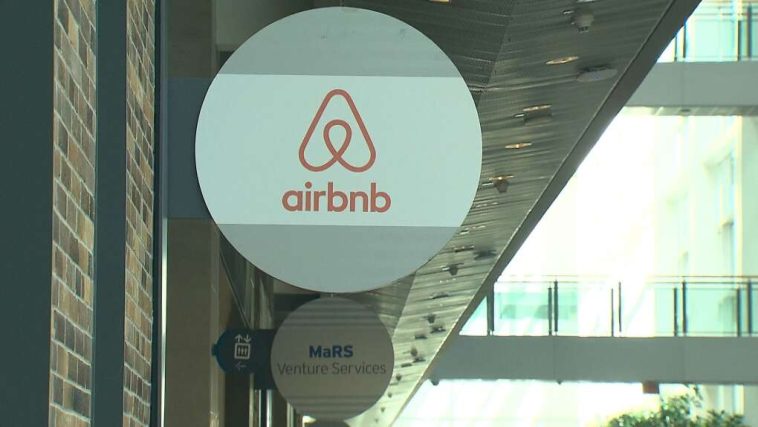Introduction.
If you’re considering renting out a property on Airbnb, you’re probably wondering, “Will this actually make money?” It’s a good question because while Airbnb hosting can be very profitable, not all properties or locations will bring in the same return.
The success of your Airbnb investment depends on a lot of factors, like location, demand, seasonality, pricing, and guest satisfaction. Knowing how to evaluate these can mean the difference between a steady income stream and a costly experiment.
Here’s a guide on what to consider, from location research to calculating costs and returns, and even ways to gauge your potential for attracting guests.
Understanding the Basics: What Drives Airbnb Profitability?
Before diving into specifics, it’s helpful to understand what factors make an Airbnb profitable. This generally comes down to occupancy rates, nightly rates, and expenses.
- Occupancy Rate: This is how often your property is booked. High occupancy rates can drive up your profits, while low occupancy rates might mean it’s tough to break even. The ideal rate varies by area, but in highly touristic or urban spots, a good occupancy rate ranges from 70-80%.
- Nightly Rate: Your pricing strategy matters a lot. The higher the rate, the more you earn per booking. However, this has to balance with occupancy—if it’s too high, fewer guests may book, so finding that sweet spot is key.
- Expenses: The costs for running an Airbnb add up. Think mortgage or rent, utilities, cleaning, maintenance, and Airbnb fees. These need to be calculated against your revenue to determine actual profitability.
How Do I Know If an Airbnb Will Be Profitable?
1. Location, Location, Location
- Urban vs. Rural: City rentals, especially in tourist-heavy areas, tend to see high occupancy rates. Rural areas may do well if they’re near popular nature spots or offer unique stays, but demand can be seasonal.
- Nearby Attractions: Properties close to popular landmarks, beaches, or event spaces often attract higher demand.
- Market Saturation: Look into how many Airbnbs are already in the area. High competition could make it harder to keep your property booked, which could impact profitability.
2. Analyzing Local Demand Trends
- Research Seasonal Trends: Demand often fluctuates with seasons. Ski resorts, for example, might do well in winter, while beachside properties peak in summer.
- Look at Local Events: Certain areas see boosts in occupancy during festivals, conferences, or holiday seasons.
- Check Comparable Listings: Go on Airbnb and check listings in your target area. You can gauge what similar properties charge per night, how often they’re booked, and what their occupancy looks like.
3. Accurate Expense Forecasting
- Fixed Costs: This includes mortgage or rent, property taxes, insurance, and platform fees (Airbnb charges hosts a service fee of around 3% per booking).
- Variable Costs: Cleaning, maintenance, utilities, and consumables (like toiletries or welcome snacks) add up. Variable costs will depend on occupancy.
- Unexpected Expenses: Occasionally, there will be damages, repairs, or extra cleaning needs that impact profitability. Airbnb covers some damages with its Host Guarantee, but not all.
4. Setting the Right Nightly Rate
- Market Research: Based on similar listings, figure out what guests are willing to pay in your area. There are tools like AirDNA and AllTheRooms Analytics that can help track rental rates and occupancy trends.
- Flexible Pricing: Adjusting your rates based on demand (e.g., higher during holidays, lower in the off-season) can help improve profitability.
- Discounts and Promotions: Offering discounts for longer stays or promotions can increase your booking rate, but make sure it’s not eating too much into profit.
5. Marketing and Guest Experience
- Stand-Out Listings: A well-designed, accurately described listing with quality photos can boost bookings significantly. Airbnb’s platform favours listings that have more reviews and higher ratings, which means good guest experiences can lead to higher occupancy.
- Positive Reviews: Consistently getting good reviews can boost your listing in Airbnb’s search results and attract more guests.
- Quick Response Time: Airbnb guests tend to book with responsive hosts. The faster you respond, the better the chances of converting an inquiry into a booking.
Pros and Cons of Running an Airbnb
Pros
- Flexibility: Renting on Airbnb allows you to choose your availability and rates, adjusting based on demand.
- Potential for High Returns: With good occupancy and pricing, Airbnb rentals can outperform long-term rentals.
- Short-Term Commitment: Unlike long-term tenants, you can pause or remove your Airbnb listing if you need the space for personal use.
Cons
- Variable Income: Income isn’t as stable as a long-term rental, especially if your area has off-seasons.
- Higher Maintenance Needs: Short-term rentals experience more wear and tear due to frequent guest turnover.
- Time and Effort: Managing check-ins, cleanings, and guest inquiries takes time, or you’ll need to pay a property manager, which cuts into profit.
FAQs
Q: How can I estimate my Airbnb’s potential earnings? A: Tools like AirDNA or AllTheRooms Analytics can give you insights on typical occupancy and nightly rates in your area, based on comparable listings. You can also check Airbnb itself to see similar properties and calculate potential earnings.
Q: What is the average Airbnb occupancy rate? A: Occupancy rates vary by location but can range from 50-80%. High-demand locations can see rates of 70% or more, while less frequented areas may have lower rates.
Q: Can I rely on Airbnb income for mortgage payments? A: Many hosts do, but it depends on occupancy and nightly rates. Be aware that Airbnb’s income is variable, so having other income sources or a financial cushion can be helpful.
Q: What are typical Airbnb host fees? A: Airbnb typically charges hosts a 3% service fee per booking. This percentage can vary depending on cancellation policies and other factors, so check Airbnb’s official policy for updates.
Q: How much should I budget for cleaning and maintenance? A: Cleaning fees vary based on location and size but average between $50-$150 per turnover. Maintenance costs depend on property age and usage frequency. Budget a monthly amount to cover minor repairs and restocking supplies.
Conclusion
Deciding if an Airbnb will be profitable involves a mix of research, forecasting, and strategic planning.
By understanding the local market, accurately predicting expenses, and ensuring a great guest experience, you can set yourself up for success.
So, what’s your take? Are you ready to dive into Airbnb hosting, or do you have any specific factors you’re still unsure about?





GIPHY App Key not set. Please check settings